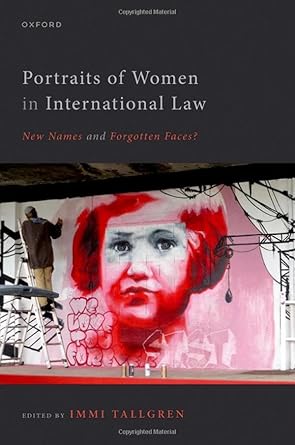ESIL Collaborative Book Prize
2025 ESIL Collaborative Book Prize Submission
The ESIL Collaborative Book Prize was created in 2022, as a counterpart to the ESIL Monograph Prize.
Federica Paddeu and Silvia Steininger are the ESIL Board members coordinating the Prize; please contact them with any questions.
Practical information on the ESIL Collaborative Book Prize and on how to submit your nomination is available below:
-
ESIL Collaborative Book Prize Guidelines
-
Deadline for the receipt of 2025 ESIL Collaborative Book Prize books is 15 February 2025.
NB: The EUI will be closed from 21 December 2024 to 5 January 2025 inclusive so please consider this information when planning your shipment.

2024 ESIL Collaborative Book Prize Winner
The 2024 ESIL Collaborative Book Prize was awarded in September 2024 during the 19th ESIL Annual Conference in Vilnius to Immi Tallgren for her book Portraits of Women in International Law (Oxford University Press, 2023)
Jury’s report
Lucidly written and accessible, yet theoretically and empirically rigorous, “Portraits of Women in International Law” makes an outstanding contribution to the intellectual history of international law. It opens new avenues for critical and feminist approaches to the field, inviting us all to radically transform the discipline’s future. More than that, the book enhances historical awareness of the international law process to date – uncovering important components of it long left in the shadow – as a key factor for the process going forward on more inclusive and balanced cultural premises. The jury believes it will be an essential reading and an invaluable resource for students, scholars and practitioners for years to come.
Previous Collaborative Book Prize Winners
-
ESIL Collaborative Book Prize 2023: Anne Peters, Jérôme de Hemptinne, and Robert Kolb for Animals in the International Law of Armed Conflict (Cambridge University Press, 2022)
-
ESIL Collaborative Book Prize 2022: Helmut Philip Aust (Freie Universität Berlin) and Janne E. Nijman (University of Amsterdam) for International Law and Cities (Edward Elgar Publishing, 2021).